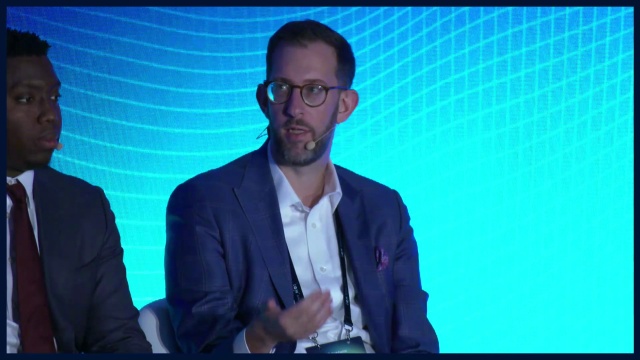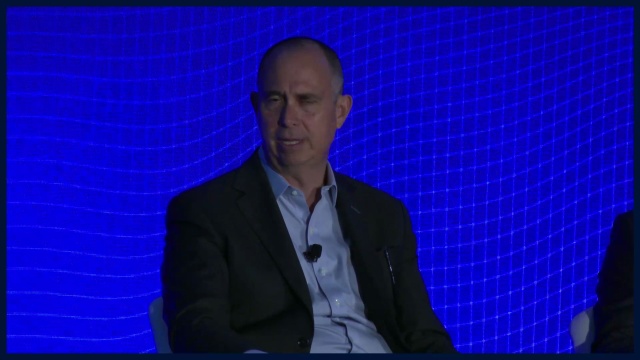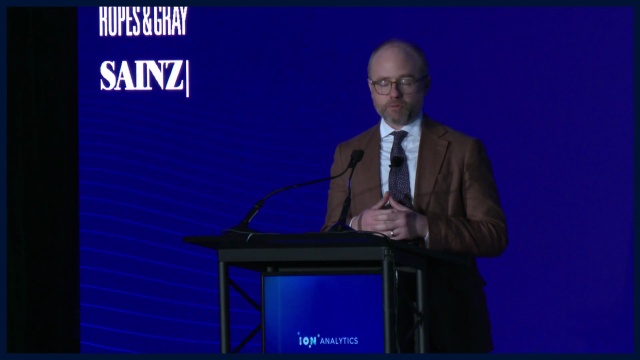Registration and breakfast
Morning keynote interview: Eugene I. Davis
Hear from a seasoned restructuring professional as they discuss their experiences of turnaround work at multinational corporations. This keynote will cover how to turn a company around and make decisions on management. The speaker will also talk about their experiences of post-bankruptcy planning and the trends in hiring restructuring professionals to boards.
Opening panel: Current state of the US restructuring market
The 2023 North American outlook began with negative sentiment and low expectations for the domestic economy with a predicted recession, high inflation and the highest interest rates in 15 years. 2022 was not a standout year for restructurings, but a flurry of activity in the last month of the year saw bankruptcy filings increase in December. According to data from Debtwire’s Restructuring Database restructuring activity has continued into 2023 with a 36% uptick in bankruptcies in the first half of 2023 with 143 cases filed compared to 105 filed during the same period in 2022. Panellists will discuss the key issues affecting North American restructuring including:
- How are sponsor-backed companies facing challenging economic headwinds and how are sponsors defending investments to avoid a Chapter 11 filing?
- What will the longer-term impacts of high inflation be for leveraged borrowers? What is the current state of global tax planning and how can tax be a material contributor within restructurings both in and outside of court?
- Debt exchanges, distressed debt buybacks, asset dropdown transactions with unrestricted subsidiaries, non-pro rata capital raises, equity cures and negotiated covenants – how are creditors reacting to these manoeuvrers to avoid bankruptcies?
- Where do panellists see future restructuring activity? Will SPACs generate more bankruptcies in 2024?
Networking break
Panel: The evolving landscape of lender-on-lender tension
This time last year in Miami, previous panellists predicted that creditor-on-creditor tensions would continue as investors seek to find advantageous positions in loan restructurings. Hallmark cases including Serta, Boardriders and TriMark are seen as potential for borrowers, operating with a simple majority, to create super senior debt capacity and then “roll-up” or exchange their existing debt into new facilities. Other popular models include so called “dropdown deals” along the lines of Revlon and J Crew’s strategy of moving assets into unrestricted subsidiaries. Most recently, the “double dip” transaction has become a more popular approach. How will the landscape lender-on-lender tension continue to evolve in 2024? Panellists will discuss:
- How are bankruptcy judges’ ‘open market purchase’ or non-pro-rata debt exchange rulings impacting creditors and investors?
- What will the impact of the Serta bankruptcy ruling be on the excluded minority lenders? How will this impact the precedent of this type of cases going forward?
- How are ‘double-dip’ transactions such as Sabre and At Home Group being structured and how will this trend evolve and impact future cases?
- Which innovations have emerged to address the ability of borrowers to engage in uptiering?
Onstage interview: Elizabeth LaPuma
Join us for an insightful on-stage interview with Elizabeth LaPuma, an accomplished investment banker and independent board director, as she shares her expertise in turnaround strategies, restructurings, and navigating the complexities of corporate bankruptcies.
Panel: The evolution of private credit in a restructuring context
Alternative asset managers such as Ares, Blackstone, Apollo, Brookfield, KKR and Carlyle have roughly doubled commitments to private credit since the end of 2019. This has fuelled the growth in the private credit market to be comparable with syndicated loans and high-yield markets in the US. Unlike the syndicated loan market, private credit has seen comparatively stable valuations during economically challenging times, but despite this, credit conditions are expected to worsen. Direct lenders typically have closer relationships with borrowers and have shown a willingness to get involved with sponsors and troubled borrowers during tough times to negotiate debt workouts which has minimised traditional defaults. However, public and private credit borrowers are both subject to today’s market challenges and factors that have steadied borrowers are starting to erode. This panel will discuss:
- How are tighter margins and thinner leverage affecting private lenders today?
- How high is the average asset-quality risk for private creditors and is this sustainable?
- Are private credit funds keeping afloat ‘zombie companies’ longer than is necessary to avoid bankruptcy? What will the long-term impacts be of this on the restructuring market?
Networking lunch
Panel: The state of Latin American restructuring
Rising interest rates, political risk, currency exposure and a significant amount of debt scheduled to mature in 2024 and 2025 in Latin America are creating opportunities for distressed investors. However, many of the situations depend on government and regulatory issues. Panelists will discuss:
- How are government policies and interest rate hikes and other global events impacting lenders and borrowers trying to refinance? What will conditions be in 2024?
- How have the changes in governments in Chile, Colombia, Brazil, and the expected changes in Argentina and Mexico, altered the landscape?
- Which sectors and companies in Latin America should opportunistic investors look towards? What have 2023’s workouts taught us?
Panel: Likely-to-distress in commercial real estate
US banks highlighted concerns about commercial real estate and specifically offices earlier in the year as an area of growing concern. This is as property values are falling and there more defaults on loans amid rising interest rates and economic challenges. Many borrowers have been forced to refinance or restructure to avoid a default. Commercial office space in key states such as California saw an average office vacancy rate of 21.6% in the first quarter of 2023. Panellists will discuss:
- What strategies are borrowers taking to refinance and restructure loans to avoid bankruptcy? How are investors reacting to these tactics?
- What are the opportunities for distressed investors? How many more distressed situations will reach bankruptcy?
- What opportunities are there for vacant offices such as empty property mitigation services?
Networking break
Panel: Is litigation financing reshaping the dynamics of restructurings?
With a 36% uptick in filings according to Debtwire, corporate bankruptcies continue to shape the business landscape and the role of litigation financing has gained prominence. As Chapter 11 bankruptcies continue to pile up, plaintiffs can make claims against third parties who may have caused or worsened distress. However, as an increasingly fertile ground for investing in legal claims, third-party litigators have been lining up to help creditors pursue claims in notable cases including General Motors Corp and Sears Holdings Corp. This panel will provide insights into how litigation financing is reshaping the dynamics of corporate restructurings. Speakers will discuss:
- What is driving the increase in litigation financing now compared to the low levels seen in 2008’s financial crisis?
- How is litigation financing enabling distressed companies to pursue legal claims they might otherwise be unable to afford? How can creditors recoup interests through litigation financing?
- How transparent are the roles of litigation funders in bankruptcy cases?
Panel: Sector focus – healthcare and hospitals
Please Note: This session will not be live-streamed or available to watch on-demand.
According to Debtwire's Restructuring Database, healthcare bankruptcy filings are considerably higher this year, reaching 30 filings in the first 6 months of 2023 compared to 46 in the full year 2022. A report by Gibbins Advisors cites the tailwinds affecting the sector as high interest rates (which are impacting borrowing cash flow and refinancing ability), labour and supply cost pressures, margin squeezes, the shift from inpatient to outpatient care in community settings post COVID-19 and the unwinding of Medicaid Continuous Enrolment. Experts expect 2023 and beyond to see a record number of healthcare bankruptcies. Panellists will discuss:
- Why are so many healthcare Chapter 11 cases in “free fall”?
- Which regulatory and legislative updates will impact restructurings in the healthcare market?
- How are related service providers being affected by the increase in bankruptcies in the sector, such as patient management systems?
Confirm cancellation
An error occurred trying to play the stream. Please reload the page and try again.
CloseSign-up to join the ION Analytics Community to:
- Register for events
- Access market insights
- Download reports




 play_arrow
play_arrow

 play_arrow
play_arrow

 play_arrow
play_arrow






 play_arrow
play_arrow






 play_arrow
play_arrow

 play_arrow
play_arrow






 play_arrow
play_arrow




 play_arrow
play_arrow







 play_arrow
play_arrow





 play_arrow
play_arrow






 play_arrow
play_arrow



































